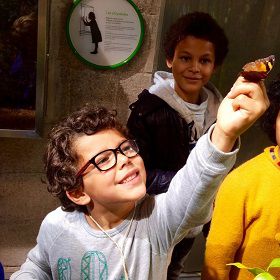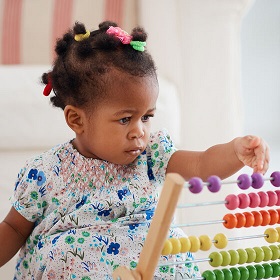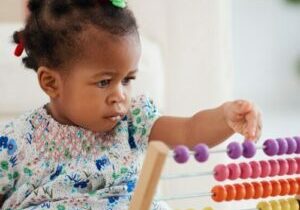A child with high potential extends beyond a mere IQ level

In English, "gifted" (précoce in French) implies having a unique talent or gift. While being gifted is generally viewed positively, it also signifies being different—where a child's thought processes and extreme sensitivity differ significantly, requiring acknowledgment. Gifted children possess skills and reasoning capacities that lead to distinctive developmental paths.
Identifying gifted children early on is now more commonplace, yet recognizing their high potential is only part of the solution. A tailored education is often necessary from early childhood to address their specific needs.
Galilée bilingual school in France has adjusted its pedagogy in its Paris preschool to cater to these needs, with personnel trained to support this distinct audience throughout their school years. This support aims to enhance their unique intelligence and nurture their more intuitive, rather than deductive, way of thinking. To prevent boredom and potential depression associated with being gifted, these children need intellectual challenges.
Considering the Whole Child

A child with high potential may feel out of sync with peers, leading to feelings of inadequacy. Belonging to a reference group where gifted children feel accepted and acknowledged normalizes their experience. Shared interests, reduced feelings of awkwardness, and mutual understanding help create bonds among these children, who are often intrigued by complex subjects not commonly discussed during recess.
As a crucial site for socialization, the school must provide opportunities for these children to form new friendships. Being kind, avoiding judgment, and considering their emotional intelligence are crucial in gaining their trust and easing the significance of their differences, allowing them to embrace their dreams and enjoy school.
Awareness of Possible Learning Disabilities

Being a precocious child doesn't grant immunity to learning disabilities; in fact, these disabilities may be linked to their unique intelligence or develop independently. Some precocious children may face challenges, such as a gap between quickly mastering reading skills and struggling with writing skills.
Identifying the specific causes of academic or social difficulties is essential, especially as gifted children may hide their struggles due to fear of failure. Therapeutic and pedagogical strategies must be tailored to each student's needs, accounting for conditions like DCD (dyspraxia), SLI (developmental language disorder), and dysorthography.
Therapeutic and Pedagogical Strategies

Galilée School has been designed to support gifted children with diverse disabilities, including DCD, SLI, and dysorthography. The school's innovative, positive, and caring pedagogy is crafted to prevent and address the difficulties faced by gifted children while respecting their unique differences.
Small class sizes enable teachers to dedicate personalized time and support to each child, preventing isolation within larger groups. The school emphasizes foreign language learning, recognizing its importance for a gifted child's continuous effort to acquire new knowledge.
Overall, Galilée School's approach strives to create a supportive environment for gifted children, fostering their growth, development, and a positive educational experience.
Our School in Paris for Gifted or High Potential Children
Bilingual Nursery Curriculum

The three nursery classes of this gifted children's school in Paris are entirely bilingual to offer a comprehensive dual curriculum. Each day, students spend 50% of their time learning English and the other half learning French, following the program of the French National Education. Children are accepted into this program from the age of two and a half and can enjoy both languages while having fun!
The peaceful and structured atmosphere of the bilingual nursery classes promotes concentration and encourages learning. The school day is organized to meet the needs of each student by alternating periods of intellectual activity, practical projects, artistic activities, and playtime. This unique organization allows students to maximize their learning potential while enjoying a variety of activities throughout the day. Therefore, it provides an ideal education for gifted children.
Primary Bilingual School Curriculum

In our institution, the French National Education program for Primary school is enriched with a bilingual curriculum. From CP to CM2 (1st grade to 5th grade), classes are limited to 20 students and involve an active approach to learning: students are encouraged to actively participate in classes:
We emphasize critical thinking, communication, listening, and creativity. We use a variety of learning methods, such as project-based learning, experiments, practical activities, and collaborative work.
Bilingual Middle School Curriculum

In our private middle school in Paris, gifted or HPI children have their rightful place in our French-English bilingual program. Our system fosters strong bonds among students as well as within the team. By the end of middle school, students will be well-equipped to integrate into any high school, whether traditional or international! Two pathways are available: the international pathway and the pathway of excellence in Arts, Sports, or Studies.













